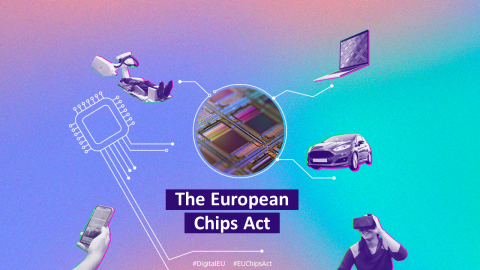On 2 December 2022, the European Commission is organising a workshop to discuss the next steps that need to be taken collectively to start reversing the semiconductors skills shortage in Europe. Tatiana Panteli, Head of the EuroTech Brussels Office, has been invited to speak about the technical universities’ perspective.
Workshop rationale
Europe is facing an enormous skills and talent challenge in the area of semiconductors. The number of open vacancies for engineers and trained technicians is high. In the next years, this fast-paced industry will require constant reskilling and upskilling of an aging labour force. The semiconductors sector urgently needs to attract STEM graduates, but it scores lower than other sectors when it comes to workplace attractiveness and gender balance.
This interactive workshop will bring together stakeholders from the industry, academia, and other relevant institutions dealing with skills in semiconductors. The aim is to create a dialogue, together with the Member States and the Commission, about what we need and what we can do starting from now in order to boost the acquisition and development of semiconductors skills in Europe, one of the five key objectives of the European Chips Act.
By the end of this session, the European Commission expects to have developed and agreed on the next steps that need to be taken collectively to start reversing the semiconductors skills shortage in Europe.

Practical information
Organiser: European Commission, DG Communications Networks, Content and Technology (CNECT)
Date and time: Friday, 2 December 2022, 9:00-13:00 CET
Location: European Commission, Rue de la Loi 51, Brussels, Belgium (and partly online, tbc)
Registration: Is required; please check the event website for further instructions.
Audience
This event is open to all.
Further information
For further information, please check the event website.





